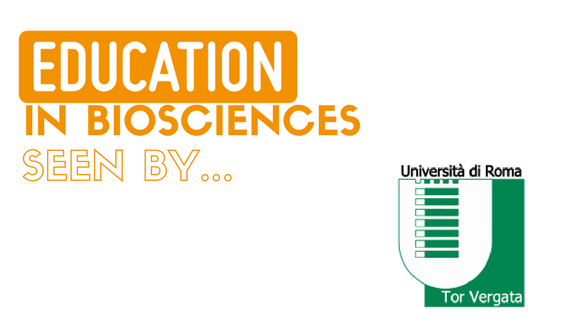
Dr. Carla Montesano – Assistant Professor of General Pathology and Immunology, member of STARBIOS2 Coordination Team, and responsible for the STARBIOS2 Action Plan of University of Rome – Tor Vergata.
Dr. Antonella Minutolo – PhD in Experimental Medical Microbiology and Immunology and Specialist in Microbiology and Virology; member of STARBIOS2 Coordination Team.
How do you understand Education, as RRI key?
Education is a crucial RRI key, which deeply affect the relationship between scientific research and society. It’s important to enhance current education process and organization so as to provide future researchers and other social actors having the capacity to take responsibility in research and innovations process, and attracting children and youths to maths, science and technology. In the framework of STARBIOS2, through our Action Plan, we seek to develop a specific approach to education, tailored to specific features of biosciences.
What are the current actions to achieve better Education, as RRI key, in your Department?
In research and teaching activities of the Department of Biology, we have started to deal more systematically, besides the general issues of the topic we work on, also aspects related to social issues. We are trying to enhance what we are already doing in our Department in this regard. The invitation we make to all members of the Department and students is to understand the link between scientific research and society, to avoid self-referential approaches, and to pay attention to the instances of society. This means, among other things, more conscientiously addressing the issues of ecology, or addressing new themes such as sustainable development (e.g. sustainable cultivation), or that of pathologies linked to some lifestyles.
What are you aiming for with the implementation of the STARBIOS2 actions towards better Education standards for your institute?
Our specific objectives are to: contribute to awareness raising of internal and external stakeholders about the RRI; insert RRI into the programs and contents of University courses (starting with the Department of Biology); supporting students in developing countries, both in teaching and on that of professionalization in the field of biosciences.

What kind of actions are you carrying out to fulfill your objectives?
As for awareness raising on RRI, we are adopting a bottom-up approach, through direct contacts with our internal and external interlocutors. We are also launching a webpage called “Bioscienza responsabile” (www.bioscienzaresponsabile.it) and a newsletter. In cooperation with Italian Alliance for Sustainable Development (within the framework of Agenda 2030) two important meetings on Gender and UNESCO chair were also organised on 6th and 7th June 2017.
As for transferring RRI related issues to students, the activities are just started, but with a good feedback from the people.
As for the Biotechnology transfer in developing countries, we have, among others: inserted RRI in training programs for African students organised by the UNESCO Chair in interdisciplinary biotechnology and bioethics (created in our Department in 1998); organised a Course of Galenic Laboratory (in collaboration with Farmalabor and Farmacap) addressed to African students of Pharmacy; established two scholarships, sponsored by IBI (Istituto Biochimico Italiano) for African students; formalised STARBIOS2 projects as model for University education at the conference “The transfer of technology and University education: experiences and perspectives” (London, 15th July 2017), in agreement with University of Makeni and Sierra Leones stakeholders.
Who is involved, from your University, in the AP in order to complete your final objective?
Since the beginning of the project our effort was to involve personally the Rector and the General Director of the University, our Head of Department, to have their advise and cooperation. We have also established direct contacts with the researchers of our Department (and also of other Faculties, and belonging to other Universities), through one-to-one conversations and meetings with little groups. Lessons and meetings with secondary schools were also organized. The web page of our Department host a section devoted to STARBIOS2 and RRI issues (http://bio.uniroma2.it/starbios2). Several activities, as said before, were organised together with private firms.
Read the last blog posts from the University of Rome Tor Vergata on Gender and Societal Engagement!







